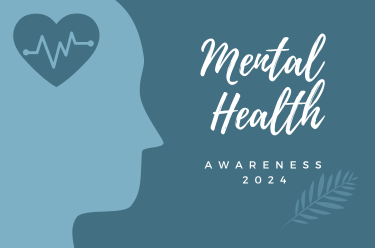Mental Health Awareness Week – 23rd to 29th September 2024
Since it’s Mental Health Awareness week, we’ve decided to talk about the relationship between pelvic floor dysfunction and mental health. Pelvic floor dysfunction includes bladder and bowel control problems, pain and prolapse, as well as sexual problems.
Pelvic floor problems affect mental health
Prolapse, bladder leakage and accidents from the bowel all have strong associations with poor mental health. Studies show increased rates of depression and anxiety, as well as low mood and emotional distress. For example, someone who has bladder leakage or bowel accidents may not want to leave the house. They miss out on social activities, or they may feel unable to participate in activity and exercise, leading to other health issues.
We also know that people who have mental health problems are less likely to seek pelvic floor treatment. Yet being able to access good help can make a big difference to a person’s quality of life.
Mental health affects the pelvic floor
The opposite can also happen – stress, anxiety and trauma can affect the pelvic floor in a negative way. Like other muscles in your body, the pelvic floor muscles can become tight. They can stay contracted and be hard to relax.
One of the body’s automatic responses to stress is to tense the pelvic floor – a bit like how we can find ourselves holding our breath when we get a bit anxious – without even realising.
When pelvic floor muscles are too tight, they can’t function properly. This can cause pain, bladder and bowel problems, and sexual dysfunction. We need these muscles to be strong enough to hold everything in until we get to the toilet, but then we need them to be able to relax at the right time to empty the bladder or bowel when we choose to. We also need them to be relaxed to allow penetration during sexual activity, or for medical exams.
Emotional stressors such as sexual trauma or abuse affect the stress response, and in turn, pelvic symptoms. If you have experienced sexual trauma in your past, your nervous system may associate sex with threat. So even during a comfortable, safe sexual experience, your pelvic floor muscles may tense up and cause pain.
Don’t put up with symptoms
People with pelvic floor disorders often suffer in silence, thinking there is nothing that can be done. They may feel embarrassed or ashamed and unfortunately there is still stigma associated with conditions such as incontinence, or pain with sex. We hear stories of people feeling unheard when talking to health professionals, perhaps being told that it’s normal. These problems aren’t talked about enough and there’s still a lack of awareness about the fact that help is available.
What can you do to help yourself?
If your pelvic floor muscles are weak:
- Try doing some pelvic floor exercises
- Take care not to get constipated or strain on the toilet – drink plenty of water and have plenty of fibre in your diet
- Take care returning to exercise if you’re new to it, or have had time off regular activity eg after childbirth or surgery
- Be careful with lifting – learn correct lifting technique, and remember to use it!
If your pelvic floor muscles are too tight, or you’re experiencing pain:
- Try having relaxation time each day – mindfulness, meditation or other relaxation techniques can make a big difference
- Keep moving and try to improve flexibility – particularly around the hips and pelvis eg regular stretching or yoga
- Practice diaphragmatic (belly) breathing
- Do regular exercise – cardio or aerobic exercise, such as brisk walking, jogging, or cycling has been shown to reduce anxiety, improve mood, and ease pain
Pelvic Health Physiotherapy can help
At Pelvic Health Physiotherapy we now have six specialised pelvic health physios. We’re more than happy to help you with any of the above techniques. And there’s lots more we can offer too.
Don’t suffer in silence – these problems are common but they’re NOT normal.
References
Psychological therapy for women with pelvic floor dysfunction. Pelvic floor dysfunction: prevention and non-surgical management, NICE Guideline, No. 210
Woolhouse, D. Gartland, F. Mensah, and S. J. Brown, (2015) “Maternal depression from early pregnancy to 4 years postpartum in a prospective pregnancy cohort study: implications for primary health care,” BJOG, vol. 122, no. 3, pp. 312–321, 2015

